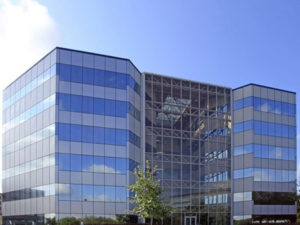London (Platts)–18 Apr 2017 1100 am EDT/1500 GMT
Low organic growth, access to cheap finance and positive balance sheets have sparked a torrent of mergers and acquisitions in the petrochemicals industry which will continue in 2017-18 depite uncertainties, Paul Harnick, global chemicals chief operating officer at KPMG told S&P Global Platts.
There has been a surge in M&A appetite in the chemicals industry in the past year with no let-up expected in 2017-2018, he said in an interview.
Many chemical companies have seen low organic growth and are now looking for different avenues to access growth, taking advantage of access to cheap finance, particularly in the western world.
Companies have significant amounts of cash on their balance sheets which they are looking to spend and are faced with a lot of activist investor pressure.
These factors have created the “perfect storm […] to drive a huge wave of M&A activity,” Harnick said.
Middle Eastern companies have taken a fresh look at their strategies, shifting from a heavy reliance on joint ventures with western and Japanese companies to taking a sole role in areas such as research and development, sales and marketing, and moving down the value chain.
Plummeting oil prices, from $120/b in 2014 to a $50/b environment in 2017 has meant that GCC companies’ advantage of cheap ethane has diminished.
In addition, a new source of low cost competition from ethane expansions in the US are threatening margins further.
GCC companies face “increased competition in some of their key markets, in particular Asia” and will see competition growing in the next few years as new US capacity comes on stream, Harnick said.
GCC majors are already producing new products, never before seen in the region, as they “look to move down the value chain to high margin, high value chemicals and at the same time to look to capture more value by taking more responsibility for sales and marketing,” he added.
POLITICAL SHIFTS
Similarly in China, a growing middle class is increasing demand for high value, more specialized chemicals and Chinese companies are “starting to move further along the value chain towards specialty [products].”
There is an increased importance of private enterprises in China, making up over 50% of the market.
“In the next few years, we will start to see more and more Chinese companies and more and more non-state Chinese companies acquiring chemical assets across the globe,” Harnick said.
“One of the great things is that [the chemical industry is] truly global and that means that geopolitical issues will have a huge impact,” he added.
US-based companies are bullish on President Donald Trump’s economic policies. The potential of over $1 trillion of infrastructure spending has created a huge amount of optimism for US-based companies as this will spur huge demand for chemical products.
But the challenge remains as to where the additional cash will come from and to what extent the president will deliver on his promises.
Moving eastwards, “[Brexit is] not just a UK issue but it will clearly impact any chemical company around the world that has operations in the UK,” Harnick said.
Leaving the free trade area or the customs union could lead to a risk of higher tariffs between the UK and the EU. Also, the non-cost effects of goods being tied up in ports for customs inspections will lengthen business and delivery times, increasing the time goods spend in supply. This will increase working capital and cash requirements for companies.
Another key development for the petrochemicals industry is Iran. The chemicals industry there is already fairly large, albeit underinvested due to sanctions, but it has access to cheap feedstocks and large gas reserves.
“The interesting thing is if and when the remainder of US sanctions fall off which would make it much easier for companies to raise finance and to invest in the country. If that happens, that could have a real, real massive impact,” Harnick said.
The trends in M&As are changing globally as it adapts to new political and economic environments.
“I don’t remember a time when there has been such an appetite for M&A,” Harnick said.
Listen to the full interview in the latest Commodities Spotlight podcast
–Yuriko Kato, yuriko.kato@spglobal.com
–Edited by Jeremy Lovell, jeremy.lovell@spglobal.com

